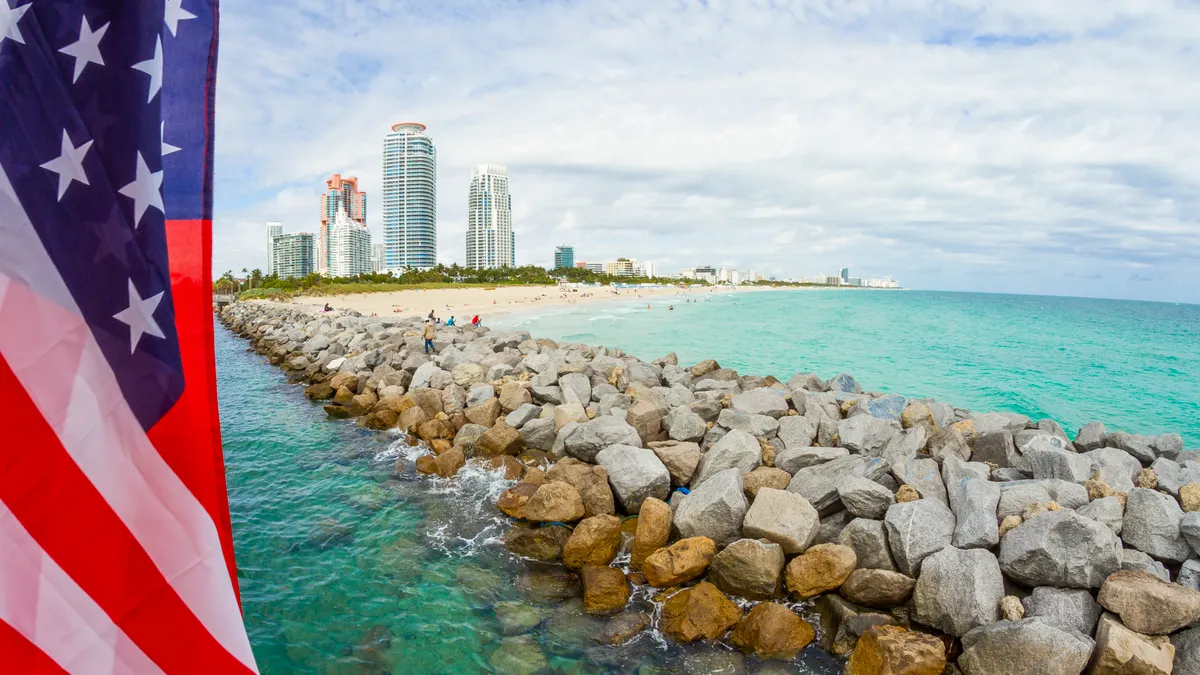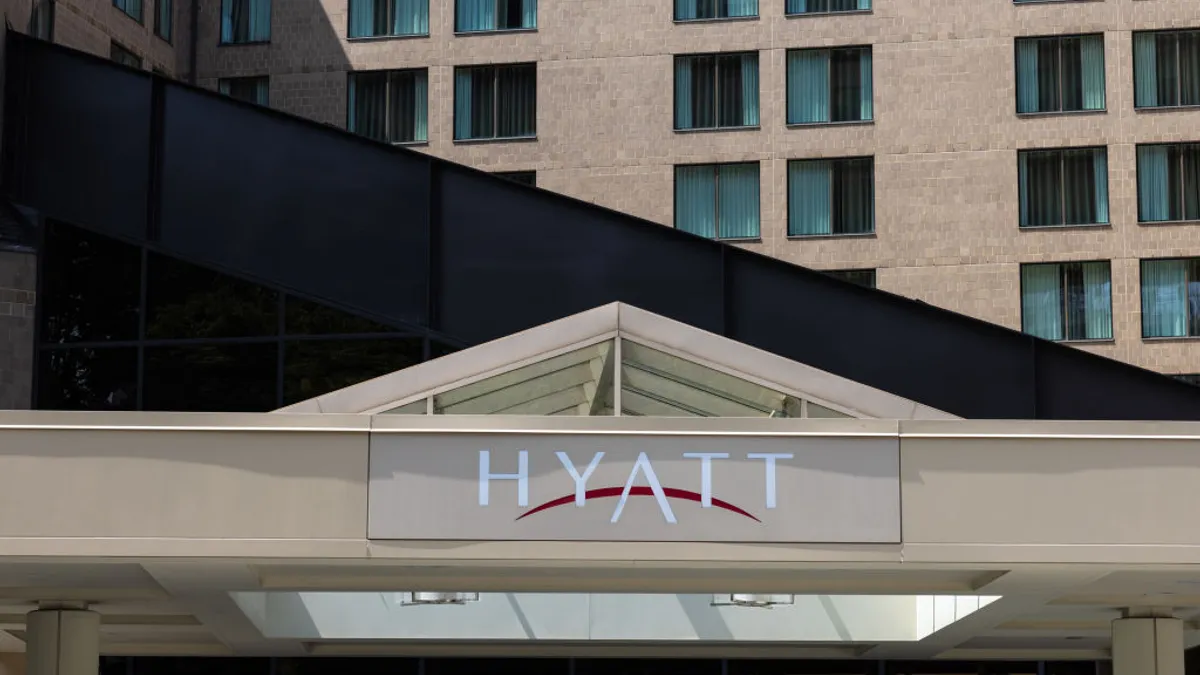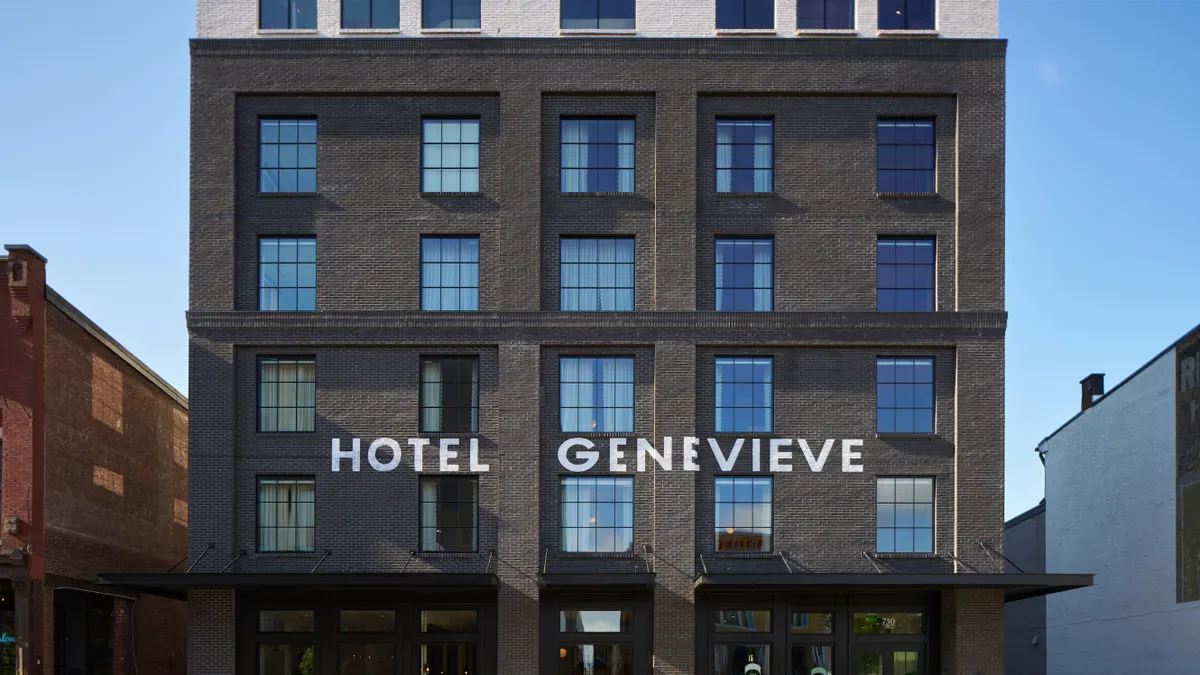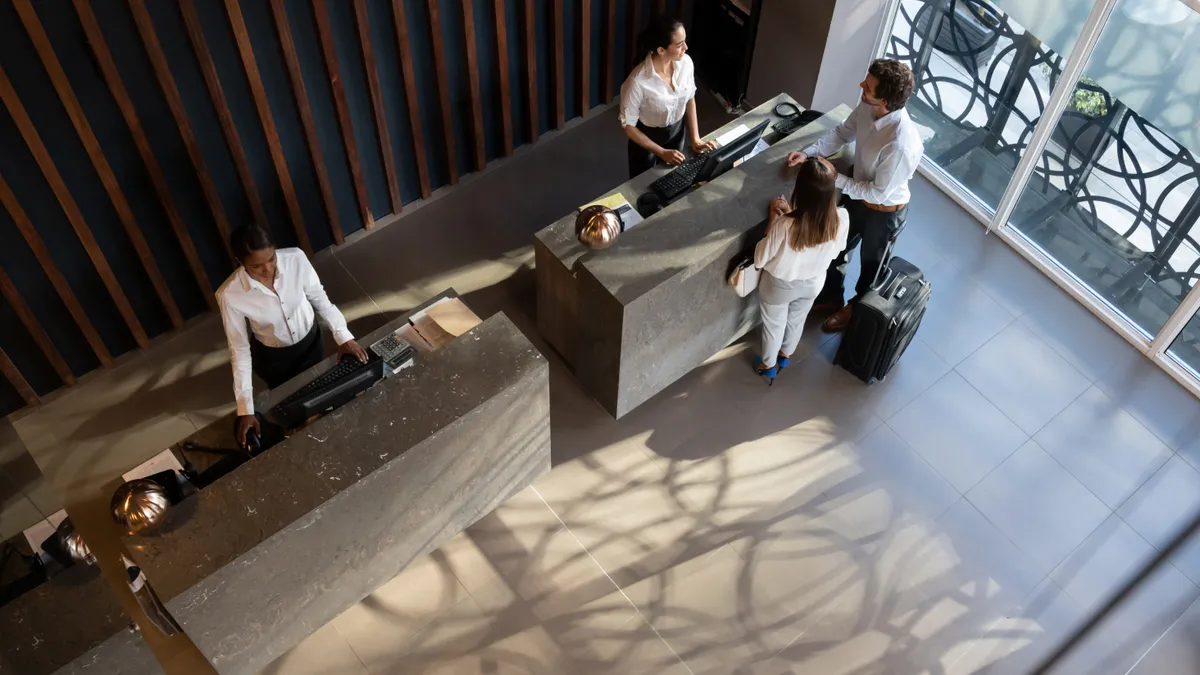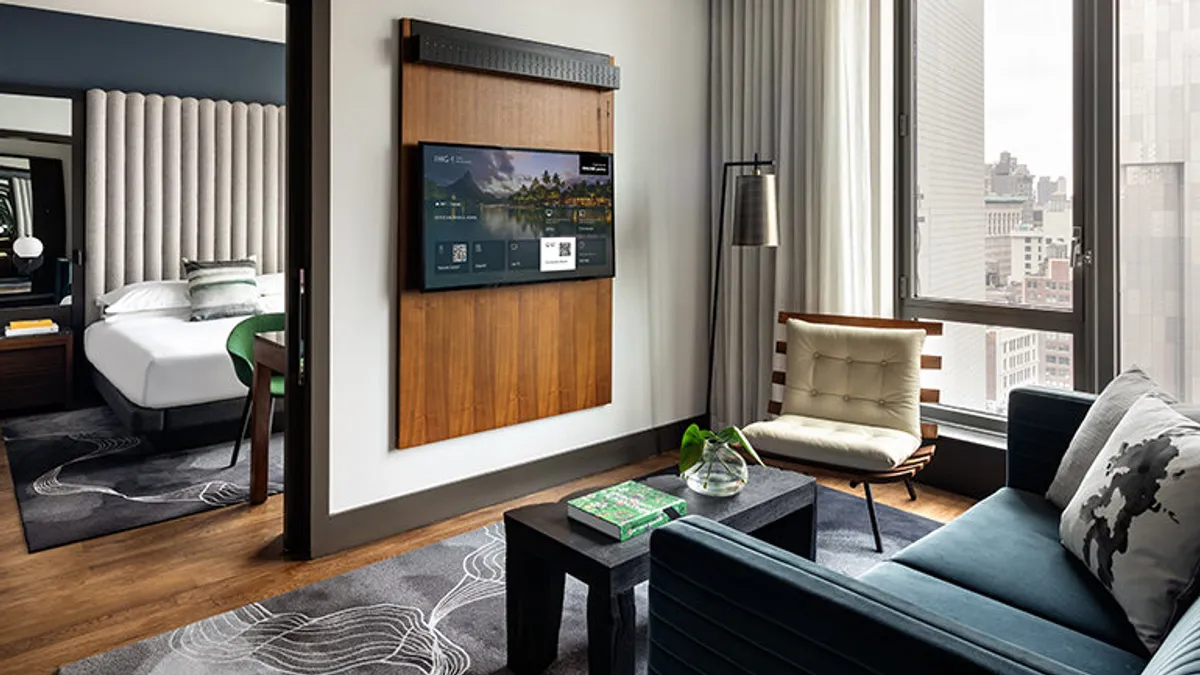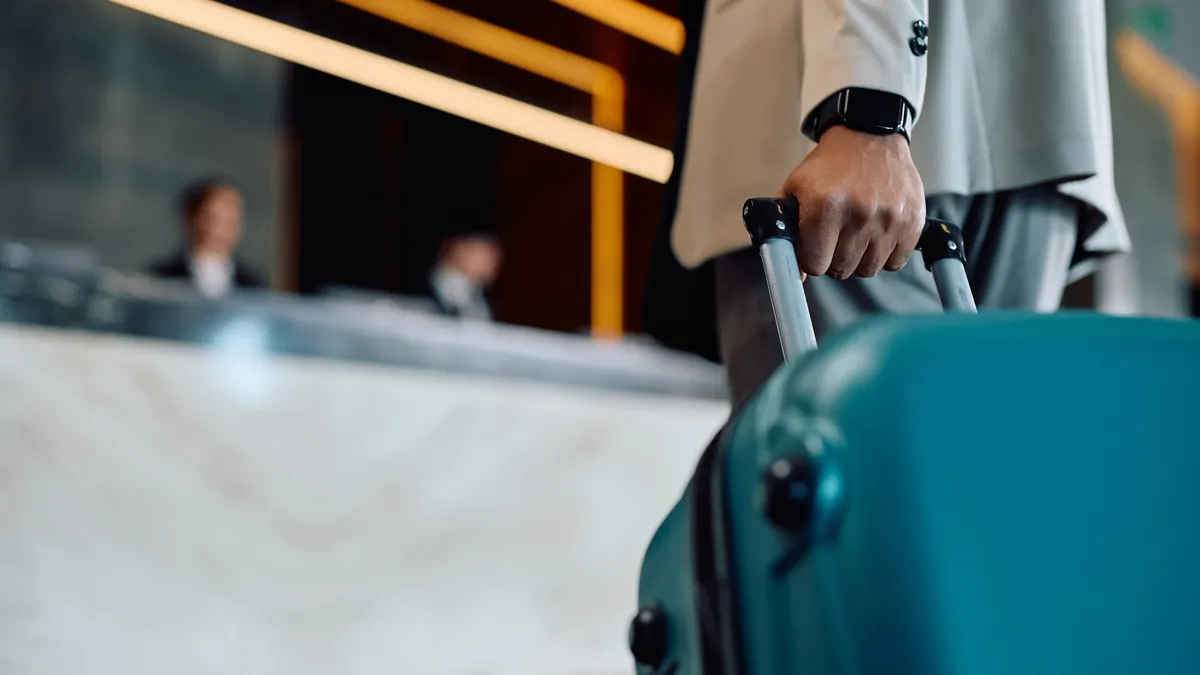On the cusp of the summer season, which in 2022 brought more than 35 million tourists to Florida, the NAACP released an advisory to travelers saying the state is “openly hostile” toward “African Americans, people of color and LGBTQ+ individuals.”
The travel advisory is in “direct response” to Gov. Ron DeSantis’ “aggressive attempts to erase Black history and to restrict diversity, equity, and inclusion programs in Florida schools.” Earlier this year, the Florida Department of Education rejected the content of an Advanced Placement African American Studies course.
The advisory does not explicitly tell travelers to avoid Florida but rather says that visitors should “understand that the state of Florida devalues and marginalizes the contributions of, and the challenges faced by African Americans and other communities of color.”
“Under the leadership of Governor Desantis, the state of Florida has become hostile to Black Americans and in direct conflict with the democratic ideals that our union was founded upon,” NAACP President and CEO Derrick Johnson said in the statement.
The advisory has caused mixed reactions from those in the state’s tourism and hospitality sectors. Visit Florida President and CEO Dana Young, a DeSantis appointee, called it a politically motivated stunt “full of factual misinformation.”
“[The NAACP's travel advisory is] a blatant weaponization of travel to score political points.”

Visit Florida President and CEO Dana Young
Meanwhile, the travel organizations Future of Black Tourism, Blacks in Travel & Tourism and the Black Travel Alliance issued a joint statement detailing their own critique: that the advisory may hurt Black-owned businesses in Florida, particularly those in the tourism industry.
The hospitality industry impact
Young, who assumed her role with Visit Florida in 2019, told Hotel Dive the advisory is “a blatant weaponization of travel to score political points.”
But Stephanie Jones, founder & CEO of Cultural Heritage Economic Alliance and Blacks in Travel & Tourism, doesn’t believe that’s the case. She said she understands the intent behind the NAACP’s travel advisory at a time when DeSantis is “forging ahead with policies to erase Black history and turn back the hands of time.”
Jones does, however, agree with Young that the advisory could cause harm to Florida’s hospitality industry.
According to Young, “The people who would be most directly hurt by a stunt like this are the hard-working hospitality professionals who depend on tourism to support themselves and their families. In Florida, tourism is our number-one industry, so if you're intentionally trying to scare potential travelers not to come [here], that's just irresponsible.”
Last year, Florida welcomed 137.6 million visitors, up 5% compared to 2019 and 12.9% compared to 2021. Accordingly, the governor’s office found hotel room nights sold at Florida hotels last year were up nearly 13% from 2021, and occupancy rose by 9.4% to 70.5% compared to 2021.
In 2020, according to Pew Research Center, Florida had 15,149 businesses with majority Black ownership, more than in California (with 13,729) and New York (with 12,636). Of those businesses, Jones said she can only think of a handful of Black-owned hotels currently operating. Last year, the National Association of Black Hotel Owners, Operators and Developers said less than 2% of U.S. hotel owners were Black.
Any disruption of visitors patronizing Florida’s small Black travel and tourism businesses — including boutique hotels, restaurants, tour operators, museums and transport providers — could “cause devastating financial losses considering many Black businesses are still trying to fully recover from the impact of the global pandemic,” said the joint statement, signed by Jones and Martinique Lewis, co-founder and president of Black Travel Alliance. “Small Black businesses and marginalized communities certainly should not be the sacrificial lamb.”
“Does the NAACP understand how small Black businesses in [the hospitality] industry have had to work extremely hard to become better positioned to be sought out by Black travelers and others seeking diverse, authentic local experiences?” the statement said.
According to Jones, the travel advisory directly contradicts the organizations’ efforts following the pandemic to “level the playing field” for small Black businesses in Florida and across the country. These efforts include working with “top industry organizations,” including Brand USA, to amplify the types of diverse experiences Florida’s Black hospitality businesses offer and encourage domestic and international travelers to intentionally seek out and visit.
Real-time hotel woes
Kristin Kitchen is the owner of Dunns Josephine Hotel in Miami, which she calls a “very sexy, fun and swanky” property focused on African American history, particularly the Harlem Renaissance.
When she heard about the advisory, Kitchen first thought of the potential decrease in bookings and loss in revenue her hotel could suffer, especially during an already slow travel season in Florida.
After closing during the pandemic, a renovated Dunns Josephine Hotel reopened in December 2021. Business was booming for those first several months, Kitchen said, but the summer saw a drastic drop in tourists.
This summer — to recoup lost revenues and drive traffic to the hotel — Kitchen and her team planned a summer pop-up art exhibition called Black Beauty as an Act of Resistance, an investment of roughly $20,000. With the NAACP’s travel advisory in place, she is worried the exhibit may not last through the season.
“We fight every day just to be present, to be valuable,” Kitchen said. “It’s so much bigger than boycotting the state. There are so many people here working as hard as we can to preserve the history that we have.”
Make it or break it
While Jones and Kitchen believe the NAACP’s motivations behind the travel advisory are meant for good, they said the organization should have more awareness around who it is really impacting.
“Small Black businesses and marginalized communities certainly should not be the sacrificial lamb.”

Future of Black Tourism, Blacks in Travel & Tourism and Black Travel Alliance
“When you call [for an advisory like this] it's not to run anybody out of business. It is to create some sort of an economic impact that the politicians will respond to because that's pretty much the only time they come to or change a decision, is when it costs them money,” Kitchen said. “Is [the advisory] going to hurt us? Yes. But it doesn't have to.”
Kitchen doesn’t believe the NAACP will rescind its advisory. But, she said, the organization could provide additional direction to travelers, telling them to come to Florida and intentionally seek out Black-owned businesses — a move that could result in boosted revenues.
Jones agreed. “What the NAACP should be telling travelers is to run to the state of Florida and be intentional about taking Black history tours and visiting Black history museums, patronizing small Black restaurants, staying in small Black-owned hotels and bed and breakfasts and shopping at Black retailers,” she said. “That's the message that the NAACP should be sending to all travelers that would truly make a benefit.”
The NAACP could have more of a direct impact on the Florida government by leveraging strategic partnerships with organizations that already have a stake in the game, like Disney, Jones added.
The NAACP’s travel advisory for Florida follows similar advisories released earlier this year by The League of United Latin American Citizens and Equity Florida, groups fighting other DeSantis-era policies.
Despite the NAACP’s advisory, “The demand for a Florida vacation has never been stronger than it is right now, and we expect that to continue,” Young said.



